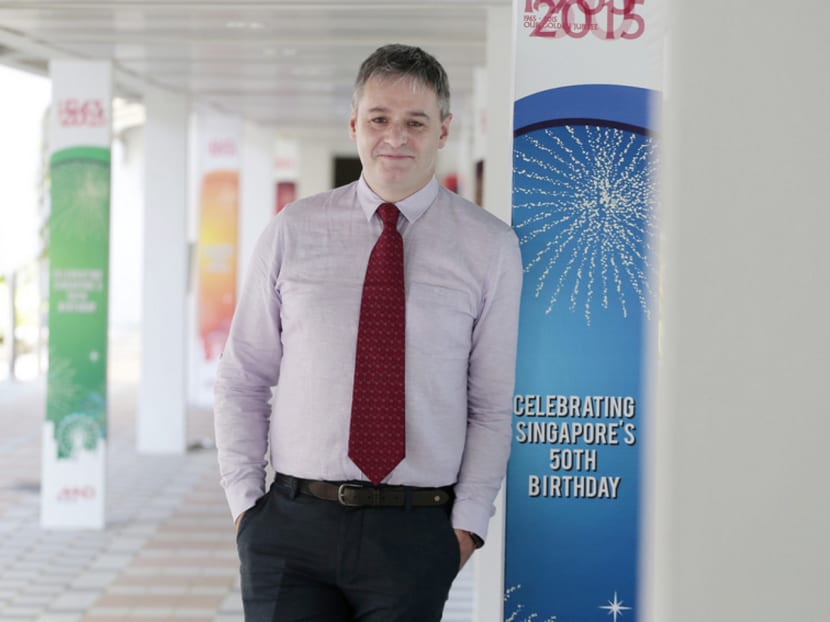Urban planner bags National Day Award
When Mr Andrew David Fassam left the United Kingdom 21 years ago to join the Urban Redevelopment Authority (URA) as an architect, what struck him most was the authority’s efficiency and openness to new ideas.
When Mr Andrew David Fassam left the United Kingdom 21 years ago to join the Urban Redevelopment Authority (URA) as an architect, what struck him most was the authority’s efficiency and openness to new ideas.
Since then, he has had a taste of these qualities: Designing Singapore’s first underground mall, CityLink Mall; developing the Marina Bay area; and an international design competition for Pinnacle@Duxton, to name a few.
His latest project is to enhance connectivity within a “car-light” city centre, said Mr Fassam, 51, who is URA’s Senior Director for Urban Planning, and a recipient of this year’s Public Administration Medal (Silver), which is part of the National Day Awards. “We are constantly looking for new, innovative ways of doing things, making sure that we stay ahead, continue to develop the economy and grow the city,” he said.
Cycling routes throughout the city are being identified now and will be unveiled in “two to three years’ time”, while a bike-sharing scheme is also under way, he added. One of the greatest challenges, said Mr Fassam, is implementing these plans in a “very built up area”.
“How do you fit it in? One of the easiest ways is to take away part of the roads, but roads are already congested. That is why we have to get people transferred onto public transport,” he said. Ensuring that public transport users and pedestrians get the same level of convenience of hopping onto the car will facilitate the change in commuting behaviour, he added.
In 2004, NTUC Income wheeled out a bike-share scheme known as Town Bike at Bukit Batok, Bukit Gombak, Tanjong Pagar and Tiong Bahru, which charged users 50 cents per half hour. It folded after four years because of poor usage.
“It takes a while for people to change the habit, but I think they understand the need to make the change... People understand that it is important for climate change, it’s just whether it is easy to do,” said Mr Fassam. While the early phases of Singapore’s development saw many “quick wins”, urban planning now involves dialogue with various stakeholders, said Mr Fassam. It is important, however, not to let crowd consultation derail projects, he stressed, citing Japan and New York as places where efficiency of development has been compromised as a result.
He cited car-free portions of the city, such as Club Street and Ann Siang Road on Friday nights, as one project where authorities worked with business owners to facilitate initial implementation.
“The stakeholders found an interest, took it on, formed an association, and now we have taken a backseat. We are trying to get more of these ground-up initiatives going,” he said. KELLY NG







